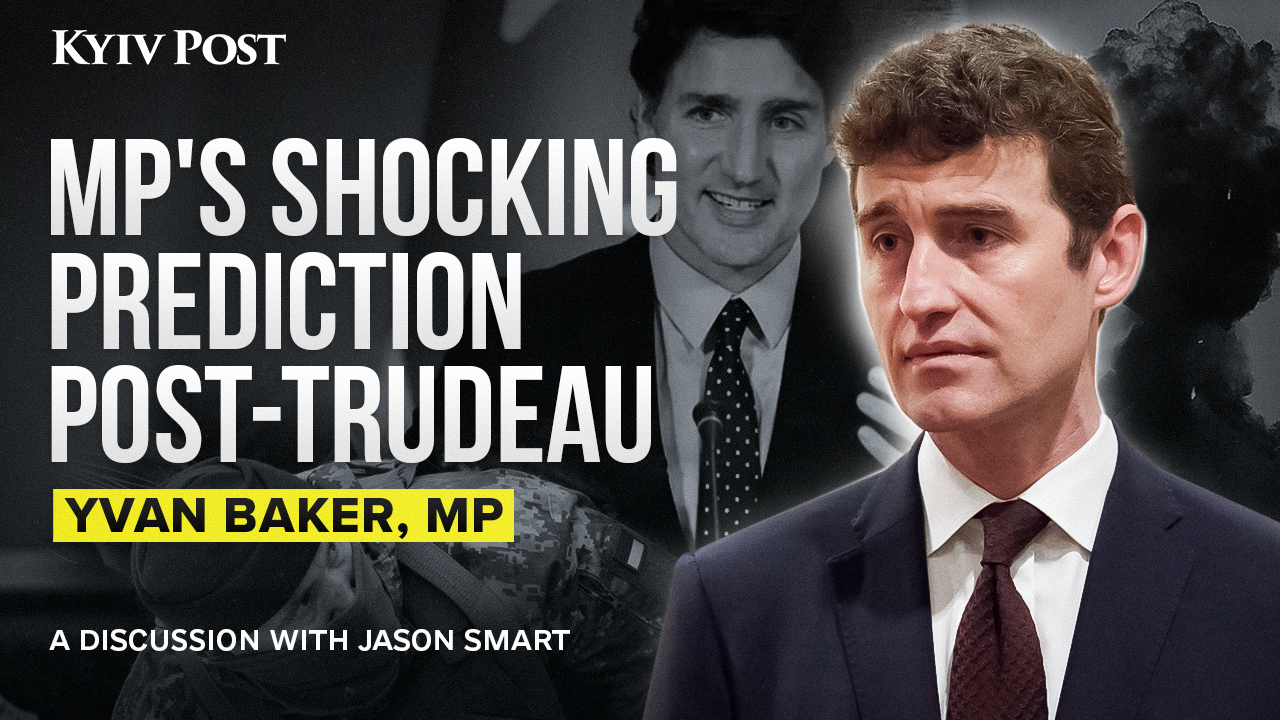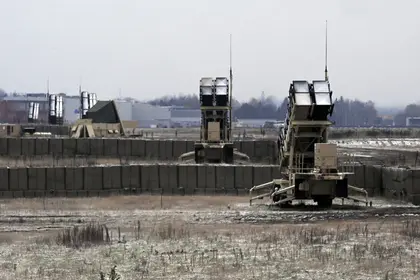President Volodymyr Zelensky said in his nightly remarks that the “Grain from Ukraine” humanitarian program for Syria could “become a foundation for us in moving toward real peace.”
According to Ukraine’s Ministry of Foreign Affairs, the “Grain from Ukraine” was launched by President Zelensky on Nov. 26, 2022, and “presented during the first inaugural International Food Security Summit in Kyiv. As a result of the Summit, the Grain from Ukraine program has accumulated support in the amount of about $220 million.”
JOIN US ON TELEGRAM
Follow our coverage of the war on the @Kyivpost_official.
🇺🇦 farmers face immense challenges caused by Russia, including damaged infrastructure, mined fields, and disrupted supply chains.
— UKR Embassy in USA (@UKRintheUSA) December 16, 2024
Despite these obstacles, Ukrainians cultivate and export vital crops, ensuring that people around the world have enough food. #GrainFromUkraine pic.twitter.com/kC2ldkU4MO
More than 30 countries and international organizations are part of the humanitarian aid program set up by Kyiv, and while the amount of the contribution and the number of donor countries are not final. “It is planned to increase the contributions of individual countries, as well as to attract new countries and enterprises to participate in the initiative. In cooperation with the UN World Food Program, Ukraine and the program’s partner countries identify recipient countries for Ukrainian grain from among those countries facing acute food shortages,” according to the ministry.
In his nightly remarks to the country Sunday, Zelensky highlighted the role of Ukraine’s humanitarian aid in helping to bolster goodwill toward the nation and usher in a just peace for Ukraine: “Today, I discussed with our government officials – the Ministry of Foreign Affairs and the Ministry of Agrarian Policy and Food – the issue of food assistance under the ‘Grain from Ukraine’ program, including aid for Syria.

Gas Infrastructure Damaged as Russia Launches Missile Barrage on Western Ukraine
“This is our humanitarian program, which has already contributed significantly to stabilizing the food situation in vulnerable regions around the world. Now, we can help Syrians with Ukrainian wheat, flour, and oil – our products that play a global role in ensuring food security.
“We are coordinating with our partners and the Syrian side to address logistical issues. We will certainly support this region so that stability there can become a foundation for us in moving toward real peace.”
Today, Commander-in-Chief Syrskyi delivered a report on the situation at the front and in the areas of the Kursk operation.
— Volodymyr Zelenskyy / Володимир Зеленський (@ZelenskyyUa) December 15, 2024
The situation remains difficult in the Pokrovsk direction, in Kurakhove. I am grateful to all the units destroying the occupiers there. Special thanks also… pic.twitter.com/4FQn0JR3wa
Moscow hopes to keep a military presence in Syria, but it will be up to the new Damascus government and the Syrian people
Meanwhile, according to the Institute for the Study of War (ISW): “Russia’s immediate plans for its military assets in Syria remain unclear as reports continue that Russia has secured agreements to keep its main military bases in western Syria while also withdrawing from its other bases in the country.”
“Russia is pulling back its military from the front lines in northern Syria and from posts in the Alawite Mountains but is not leaving its two main bases in the country after the fall of President Bashar al-Assad, four Syrian officials said,” according to a report Sunday by Reuters
Reports said that some equipment is being shipped back to Moscow and some “very senior” Syrian officers in Assad’s military leadership are fleeing to Russia. However, “the aim at this stage is to regroup and redeploy as dictated by developments on the ground, a senior Syrian army officer in touch with the Russian military,” reported Reuters.
The news agency said that an unnamed senior rebel official close to the new interim administration said the issue of “the Russian military presence in Syria and past agreements between the Assad government and Moscow were not under discussion.”
“It is a matter for future talks and the Syrian people will have the final say,” said the unnamed interim official.
“Our forces are also now in close vicinity of the Russian bases in Latakia,” he said
Russian recent assault in Siversk shows Russian forces somewhat adapting to Ukrainian drone tactics
Moscow troops in recent days conducted a battalion-sized mechanized assault in the Siversk sector following a recently reported command change within the Russian forces operating near Siversk.
The recent Siversk assault indicates that Russian forces appear to be learning to conduct more effective assaults but remain far from restoring maneuver to the battlefield, according to ISW analysts. The recent Russian assault was “much larger and more coherent than most Russian assaults in the Siversk sector, and Butusov assessed that Russian forces carefully prepared this assault.”
Ukrainian military observer Yuriy Butusov reported on Dec. 15 that “Russian forces conducted a three-pronged mechanized assault with over 400 personnel, up to 30 armored vehicles, 13 buggies, and 60 motorcycles north, east, and south of Siversk on Dec. 14.”
Butusov said that “Russian forces specifically coordinated interactions between assault units and communications, electronic warfare (EW), and drone operations – all elements of command and control (C2) with which the Russian military command has historically struggled to conduct effectively,” reported ISW.
According to ISW, “Geolocated footage published on December 15 shows that Russian forces marginally advanced during a roughly company-sized mechanized assault north of Vesele (south of Siversk) — likely a component of the larger attack. Butusov reported that Russian forces managed to wedge into four Ukrainian defensive positions and drop infantry but that Ukrainian drone and artillery fire as well as close combat ultimately repelled the assault.”
You can also highlight the text and press Ctrl + Enter












